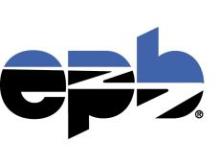Chattanooga's Approach to Connecting Customers
Just how does the largest citywide community fiber network in the country deal with the thousands of people that want to subscribe? It is a daunting task, but the Times Free Press has an answer: a carefully scripted process.
Chattanooga's Electric Power Board (EPB) largely contracts with a company for the labor to do the installs:
Adesta is responsible for 80 percent of EPB's fiber-to-the-home installations, according to Lansford, project manager for Adesta. EPB itself performs the remaining 20 percent, as well as trouble calls. Beginning in June 2009, Adesta ramped up from a one-man office to more than 120 locally hired technicians, and now performs an average of 500 installations per week, or about 100 every day, he said.At the end of October, when the article was written, Adesta had hired some 123 technicians - more than twice as many as they originally expected to need. Perhaps the largest advantage of contracting with a company like Adesta for connecting subscribers is the company's ability to quickly hire more technicians as demand increases. Civil service rules for hiring can hamper hiring when all installs are done in-house. EPB directly employes some thirty installers. Chattanooga closely supervises the training and quality of work from the contracted technicians. Perhaps the biggest downside to hiring outside contractors for this work is the potential for technicians not being invested in the satisfaction of the customer or rushing from install to install to maximize their income. In Chattanooga, they expect technicians to do two installs per day to avoid encouraging shortcuts. In talking with an employee of another muni fiber network, he was amazed at the efficiency of Chattanooga's backoffice processes. The Times Free Press was also impressed:
From a control room in EPB, Abed manages every call that goes out, and knows the location of EPB and Adesta trucks at all times. A computer assigns work based on efficiency, and trouble calls are automatically routed to the nearest available unit.Even in Chattanooga, which has had more of a smooth roll-out than most, getting into apartment buildings (MDU) is difficult:
In addition to servicing homes and businesses, EPB and Adesta have begun rolling out service to apartments as well, he said, addressing a key hole in their service.



